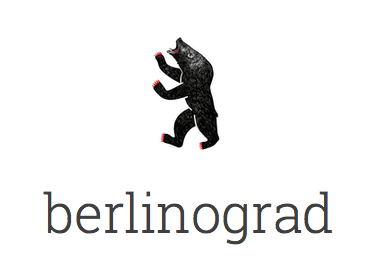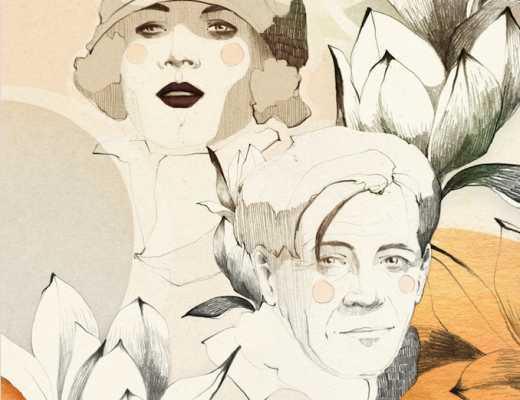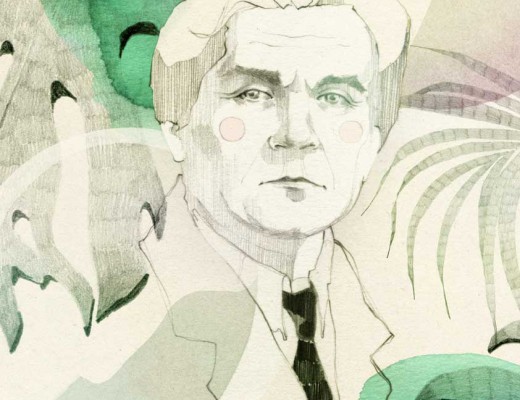Andrei Bely is not only one of the most important poets of the 20th century, but also an important theorist of art. He is considered one of the main representatives of symbolism. The Literary Salon is held every third Tuesday of each month and deals with current topics of contemporary art.
A.M.:
Good evening Mr. Bely, first thank you for being here, in “Haus der Künste” tonight.
A.B.:
Thank you and the audience for the interest in my work. You know, fame is a devil, it is the reward and the downfall of an artist at the same time.
A.M.:
Why?
A.B.:
Through fame, priorities can shift so that artist serves his fame much more than he creates at a certain point. Fame can remove the artist from the reason he is praised and respected.
A.M.:
What do you think about how this process of removing is set in motion when the fame takes over the artist?
A.B.:
The principle of cause and effect should be known to you: Fame is exaggerated praise of an anonymous crowd. If praise was an adjective, fame would be its superlative. Praise can be legitimate, no question, but it is not necessarily a reference to an artist’s achievement once it transforms to pure fame. An artist must always be aware of fame.
A.M:
Mr. Bely, you are not only a great poet but also a great philosopher. Your theoretical writings deal with questions of religion, ethics and aesthetics. What about art today?
A.B.:
I wished things were not as tragic and bitter as they are. The people of Russia are suffering very badly. Daily life is determined by death through famine and the Red Revolution. Despotism torturers people throughout all social classes. The idea of death in the wasteland of Siberia is cruel nevertheless you must deal with it. You never know… Respect for human life is dead – red. What an artist does, what we do is to warm and nourish the exploited people with our minds to help them to survive. This is what art is about at least today.
A.M.:
Who does warm you?
A.B.:
After all, thanks to the warmth of my friends, I am here in Berlin. This city is the Valhalla of contemporary artists. I make new acquaintances and renew old ones in the Russian community. The active cultural life in exile initiates important occasions for critical discourse and exchange among other cultural activists and artists. I feel very welcome, although I cannot say how long I intend to live here. What do you think of the current mood of optimism in which we are now?
A.M.:
I really hope this kind of naïve optimisme does not pave the way to hell. I am constantly driven by the question of how this world is to be understood and how atrocity can be explained? The world seems to me like a huge theatrical performance: Sometimes I feel like sitting in the audience and sometimes being shown to an audience on stage. Both ideas are terrifying and bring up the question of free will. Nevertheless, everything seems perfectly choreographed. I wonder why this God has left us or is this all God? The world seems unreal.
A.B.:
First, God is everywhere. Second, I go back one step further and ask why the human mind deals with such questions at all. I believe in the principle of simplicity. The simple, however, is highly complex and for that reason only detectable in fragments for the human mind. One tends to underestimate the simple and confuse it with the banal. In the search of the simple civilizations rise and fall throughout history. We need to understand how we get to knowledge.
A.M.:
What are the differences between the thinking of here and there?
A.B.:
I had a certain view on some thinking minds. In the light of my own experiences I must reconsider my opinion on intellectual positions now. What I notice is a toxic narrow-mindedness and a kind of a bigotry here. Intellectuals get lost in their own thinking structures and thereby lose also the ability to recognize a larger context in the things and to formulate a proper result. The process of gaining high knowledge gets interrupted by a static way of thinking, which is unremarkable from outside. In this world philosophy is strictly separated from literature, literature from fine arts, fine arts from music so on and so on. An intellectual must preserve these boundaries – a claim, which is almost ridiculous. No matter how strictly these disciplines are separated, in the end there exist an inestimable connection between them.
A.M.:
We come closer to the question of what art is, which you discuss also in the essay on “The meaning of art” …
A.B.:
First, it is necessary to distinguish the concepts of art and creation. Creation is the implementation of the ideas of practical reason and thinking in pictures. Art is a creative activity of the mind, but not every creative activity is art. Art creates values, so it is closer to religion than to ethics. Inside it pursues religious goals, which are the transfiguration of humanity and the creation of new forms. An artist is a creator of a special kind and aims to translate divine ideas into symbols in an act of creation.
A.M.:
What is the meaning of art?
A.B.:
The meaning of art is religious. If we separate art from its religious meaning – the everlasting ennoblement of human nature exemplified by the Godman (bogočelovek), who exists only once, through the four kinds of art – music, painting, poetry, sculpture/architecture – we deny any further meaning.
A.M.:
Who is the Godman?
A.B.:
The Godman appears only in the form of Jesus Christ.
An excerpt from the conversation with Andrei Bely during the Literary Salon in the “Haus der Künste” on February 24, 1923. Address: „Dom Iskusstv“ („Haus der Künste“), Kurfürstenstr. 75, Berlin





No Comments